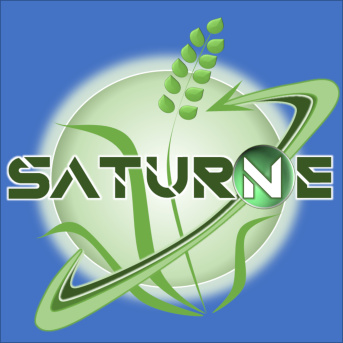ANR hAPPEN 2020-2024: Autophagy, proteases and plant performance. The SATURNE team collaborates with the INCCA team of UMR INRAE-UniCaen EVA to (i) explore the complementary roles of autophagy and proteases in nutrient remobilization and source-sink signaling during root senescence and of leaves, (ii) identify the protein substrates of autophagy and proteases during leaf senescence.
CIFRE INRA/NOVAEM thesis grant contract 2021-2024: Role of amino acid supply on plant metabolism and agronomic performance. The objective of the thesis is to better understand the effect of amino acids on plant metabolism and performance (growth, yield and seed quality).
FSOV Remoblé project 2018-2021: Physiological characterization of a key factor in the remobilization of nitrogen to the grain in wheat. FSOV 2018 bringing together INRAE, ARVALIS Institut du Végétal, Limagrain EU. Three research teams working on the molecular mechanisms of senescence and nitrogen remobilization (SATURNE, IJPB), the genetic variability of wheat (GEDEC), and ecophysiological modeling (LEPSE), a technical institute strongly involved in phenotypic and genotypic characterization of wheat varieties (ARVALIS Institut du Végétal) and a breeder (Limagrain EU), join forces to understand in detail the physiological relationships between senescence and the remobilization of nitrogenous elements in wheat genotypes having functional alleles and non-functional cells of a locus that increases protein concentration without affecting yield.
ANR ARIMNET BEST 2016-2020: Exploration of the genotypic diversity of barley to optimize grain and straw quality under stressful growing conditions. The SATURNE team is part of a consortium of nine teams located around the Mediterranean area to estimate the genotypic variability of nitrogen remobilization in barley varieties.
ANR BIOADAPT AUTOADAPT 2012-2016: Role of autophagy in the adaptation of plants to the environment. The SATURNE team is collaborating with UMR INRAE-UniCaen EVA to explore the role of autophagy and proteases in the efficiency of nitrogen remobilization.
ITN Marie Sklodowska-Curie 7th framework program EU CropLife 2010-2014: Thesis grant on “Autophagy and Barley”.
CIFRE INRA/NOVAEM thesis grant contract 2021-2024: Role of amino acid supply on plant metabolism and agronomic performance. The objective of the thesis is to better understand the effect of amino acids on plant metabolism and performance (growth, yield and seed quality).
FSOV Remoblé project 2018-2021: Physiological characterization of a key factor in the remobilization of nitrogen to the grain in wheat. FSOV 2018 bringing together INRAE, ARVALIS Institut du Végétal, Limagrain EU. Three research teams working on the molecular mechanisms of senescence and nitrogen remobilization (SATURNE, IJPB), the genetic variability of wheat (GEDEC), and ecophysiological modeling (LEPSE), a technical institute strongly involved in phenotypic and genotypic characterization of wheat varieties (ARVALIS Institut du Végétal) and a breeder (Limagrain EU), join forces to understand in detail the physiological relationships between senescence and the remobilization of nitrogenous elements in wheat genotypes having functional alleles and non-functional cells of a locus that increases protein concentration without affecting yield.
ANR ARIMNET BEST 2016-2020: Exploration of the genotypic diversity of barley to optimize grain and straw quality under stressful growing conditions. The SATURNE team is part of a consortium of nine teams located around the Mediterranean area to estimate the genotypic variability of nitrogen remobilization in barley varieties.
ANR BIOADAPT AUTOADAPT 2012-2016: Role of autophagy in the adaptation of plants to the environment. The SATURNE team is collaborating with UMR INRAE-UniCaen EVA to explore the role of autophagy and proteases in the efficiency of nitrogen remobilization.
ITN Marie Sklodowska-Curie 7th framework program EU CropLife 2010-2014: Thesis grant on “Autophagy and Barley”.

Leaders:
Céline Masclaux-Daubresse
Fabien Chardon